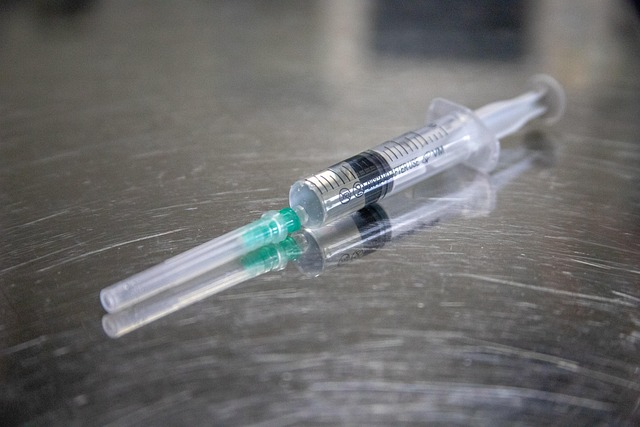Dietary fiber, often referred to as “roughage,” is a type of carbohydrate found in plant-based foods that the body cannot digest or absorb. While it might seem counterintuitive to consume something your body doesn’t break down, fiber plays an indispensable role in maintaining digestive health. In fact, adequate fiber intake is one of the most effective ways to prevent a wide range of digestive disorders, from constipation to more serious conditions like diverticulitis and colorectal cancer. This article explores how fiber supports digestive health, the types of fiber, and its specific benefits in preventing common digestive issues.
What Is Dietary Fiber?
Fiber is classified into two main categories, each with distinct roles in promoting digestive wellness:
- Soluble Fiber : Dissolves in water to form a gel-like substance. It helps regulate blood sugar levels, lower cholesterol, and support gut health by feeding beneficial bacteria.
- Sources: Oats, beans, lentils, apples, carrots, and psyllium husk.
- Insoluble Fiber : Does not dissolve in water and adds bulk to stool, aiding in regular bowel movements and preventing constipation.
- Sources: Whole grains, nuts, seeds, vegetables (like broccoli and cauliflower), and fruits with skins (like pears and berries).
Both types of fiber are essential for optimal digestive function, and consuming a mix of soluble and insoluble fiber ensures comprehensive gut health.
How Fiber Supports Digestive Health
Fiber’s impact on the digestive system extends far beyond simply keeping you regular. Here’s how it works:
1. Promotes Regular Bowel Movements
Insoluble fiber increases stool bulk and softens it, making it easier to pass through the intestines. This reduces the risk of constipation—a common issue caused by slow-moving stool and hard, dry feces. Regular bowel movements also help prevent complications such as hemorrhoids and anal fissures.
2. Feeds Gut Microbiota
Soluble fiber acts as a prebiotic, serving as food for the trillions of beneficial bacteria residing in your gut. These microbes ferment fiber into short-chain fatty acids (SCFAs) like butyrate, which nourish the cells lining the colon and reduce inflammation. A healthy gut microbiome is crucial for preventing dysbiosis—an imbalance of gut bacteria linked to various digestive disorders.
3. Reduces Risk of Diverticulitis
Diverticulitis occurs when small pouches (diverticula) in the colon become inflamed or infected. A high-fiber diet helps prevent this condition by ensuring smooth passage of stool and reducing pressure within the colon. Studies show that individuals who consume adequate fiber have a significantly lower risk of developing diverticular disease.
4. Lowers Risk of Colorectal Cancer
Fiber-rich diets are associated with a reduced risk of colorectal cancer, one of the most common cancers worldwide. The protective effects stem from fiber’s ability to:
- Speed up transit time, minimizing exposure of the intestinal lining to potential carcinogens.
- Bind to toxins and waste products, facilitating their removal from the body.
- Support a healthy gut microbiome, which plays a role in immune regulation and cancer prevention.
5. Alleviates Symptoms of Irritable Bowel Syndrome (IBS)
For individuals with IBS, fiber can be both helpful and problematic, depending on the type consumed. Soluble fiber tends to soothe symptoms like bloating and diarrhea by regulating bowel movements and improving stool consistency. However, insoluble fiber may exacerbate symptoms in some cases, especially if consumed without sufficient hydration. Tailoring fiber intake based on individual tolerance is key.
6. Helps Manage Acid Reflux and GERD
While fiber itself doesn’t directly treat acid reflux or gastroesophageal reflux disease (GERD), it indirectly supports esophageal health by:
- Preventing overeating due to increased satiety.
- Stabilizing blood sugar levels, which can reduce cravings for trigger foods like sugary snacks or fried meals.
Specific Digestive Disorders Prevented by Fiber
1. Constipation
Constipation is one of the most prevalent digestive complaints, affecting millions globally. Insufficient fiber intake is a leading cause, as it slows digestion and leads to hard, infrequent stools. Consuming fiber-rich foods like prunes, bran, and legumes can restore normal bowel function.
2. Hemorrhoids
Straining during bowel movements—a common consequence of low fiber intake—can lead to hemorrhoids, swollen veins in the rectum or anus. By softening stool and promoting easier elimination, fiber minimizes straining and reduces the likelihood of developing hemorrhoids.
3. Diverticulosis and Diverticulitis
As mentioned earlier, fiber prevents diverticulosis (formation of diverticula) and its progression to diverticulitis. Without enough fiber, undigested food particles and waste linger in the colon, increasing pressure and creating weak spots where diverticula can form.
4. Small Intestinal Bacterial Overgrowth (SIBO)
While excessive fiber can worsen SIBO symptoms in some cases, moderate intake of soluble fiber supports gut motility and prevents bacterial buildup in the small intestine. Balancing fiber consumption with medical guidance is essential for managing this condition.
5. Ulcerative Colitis and Crohn’s Disease
Although fiber alone cannot cure inflammatory bowel diseases (IBDs) like ulcerative colitis and Crohn’s disease, it can play a supportive role during remission phases. Well-tolerated sources of soluble fiber, such as oats and bananas, may help maintain gut health and reduce flare-ups.
How Much Fiber Do You Need?
The recommended daily intake of fiber varies by age and gender:
- Men: 30–38 grams per day
- Women: 21–25 grams per day
Unfortunately, most people fall short of these guidelines, consuming only about half the recommended amount. To bridge this gap, incorporate more whole, unprocessed foods into your diet, such as:
- Fruits (with skins)
- Vegetables
- Legumes (beans, lentils, chickpeas)
- Whole grains (brown rice, quinoa, barley)
- Nuts and seeds
Tips for Increasing Fiber Intake Safely
While increasing fiber is beneficial, doing so too quickly can cause bloating, gas, and discomfort. Follow these tips for a smooth transition:
- Gradual Increase : Add fiber incrementally to give your digestive system time to adjust.
- Stay Hydrated : Drink plenty of water to help fiber move smoothly through your digestive tract.
- Balance Soluble and Insoluble Fiber : Aim for a mix of both types to address different aspects of gut health.
- Experiment with Recipes : Try new dishes featuring fiber-rich ingredients, such as soups, salads, and grain bowls.
